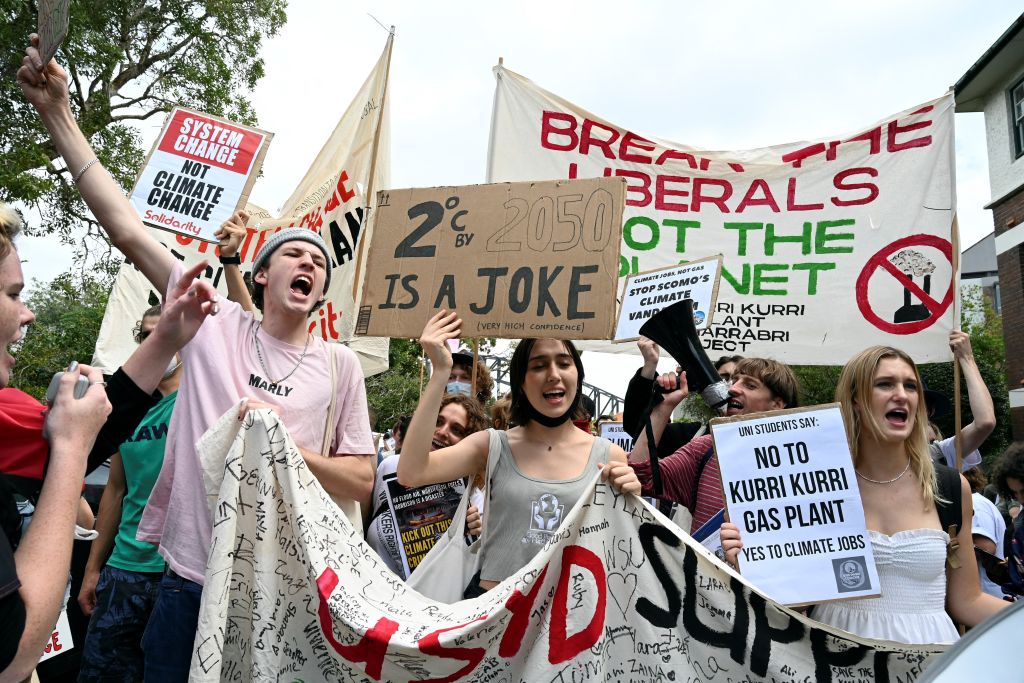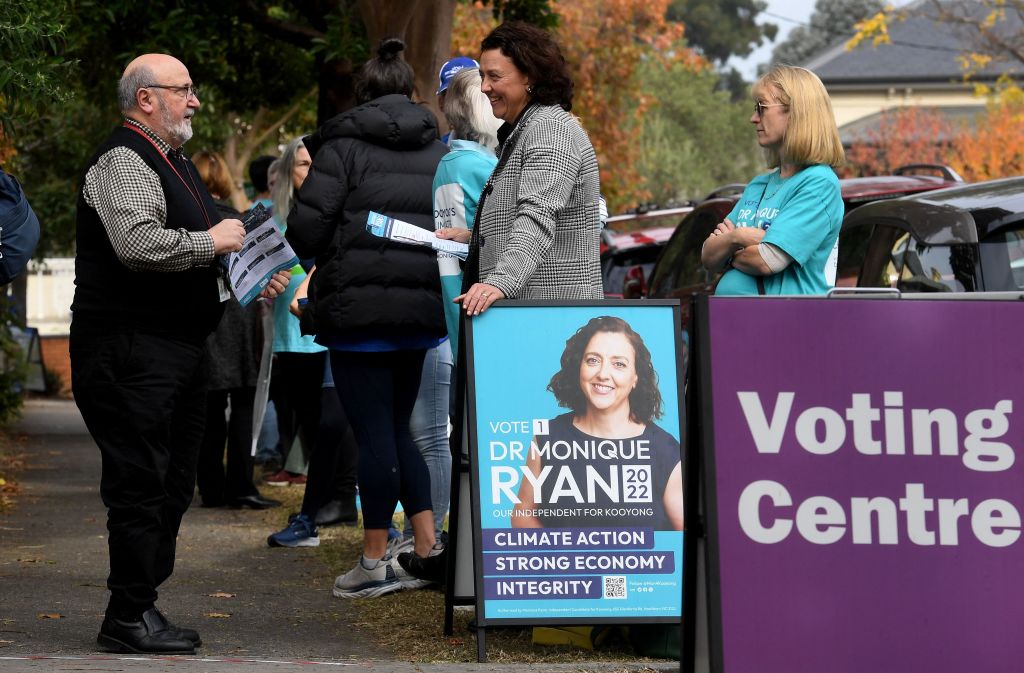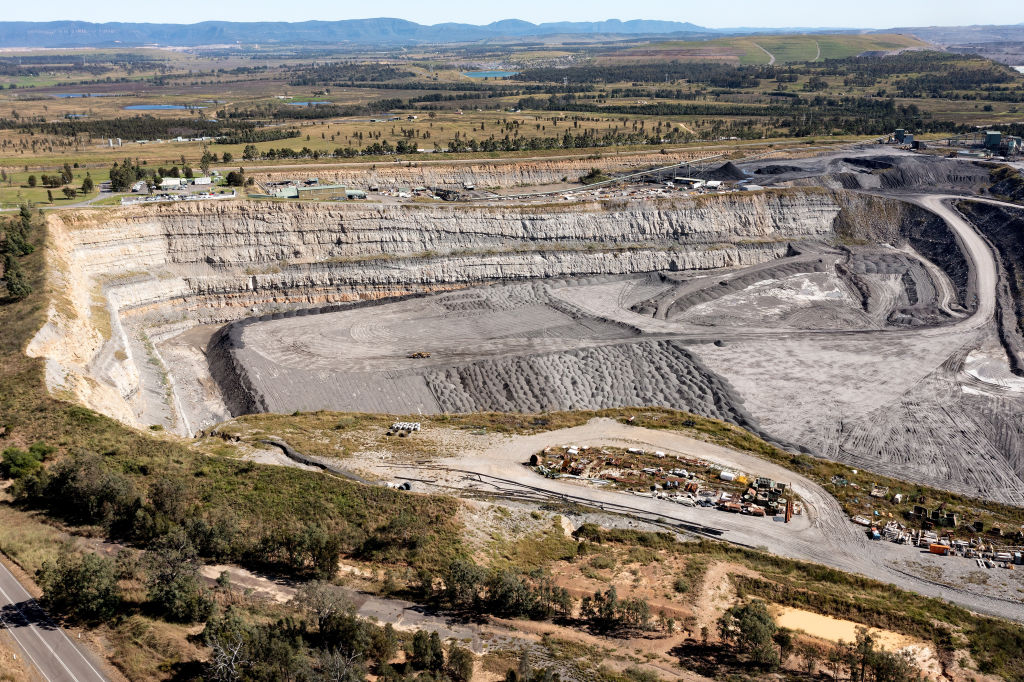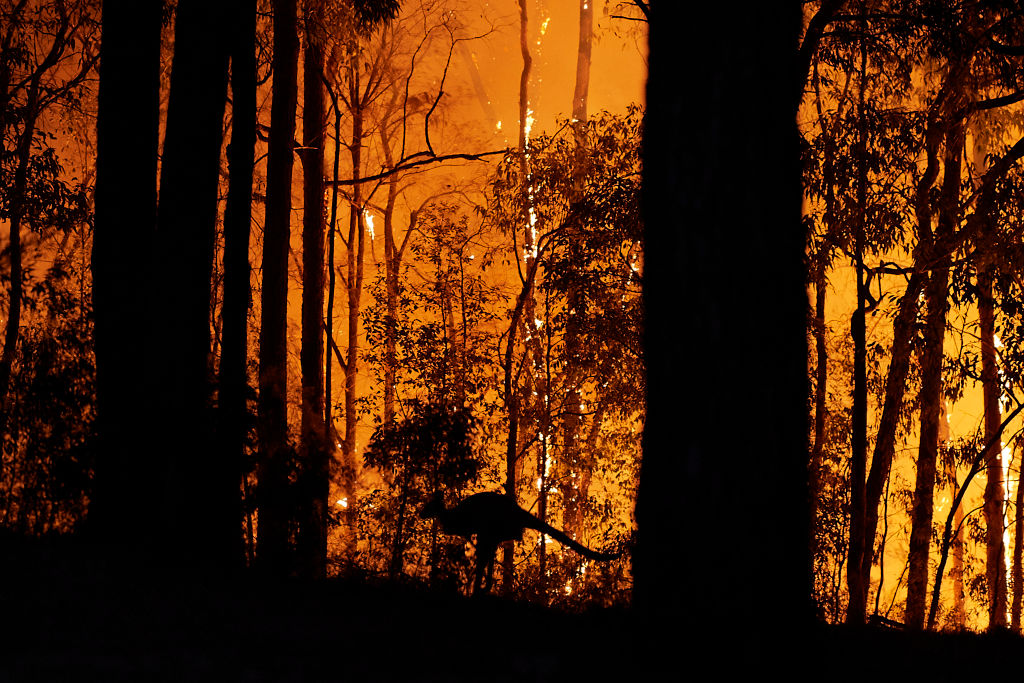
Giant billboards featuring the face of Australia’s treasurer, Josh Frydenberg of the Liberal Party, loom over busy intersections across the affluent electoral division of Kooyong, which covers several inner Melbourne suburbs. But an army of volunteers is door-knocking to gather support for independent candidate Monique Ryan, a pediatric neurologist who is promising tougher emissions reduction targets as the May 21 federal election approaches. Ryan campaign signs hang outside many homes, and some dogs even sport bandanas with her name on it. The squares of fabric are colored teal, combining Liberal Party blue and the color of the Greens Party.
The battle in Kooyong will be repeated among electorates across the country as independent candidates—who promise to tackle climate change—vie with members of the Liberal Party. The major party in Australia’s ruling coalition stands accused of failing to take meaningful action on the issue.
“I would really like to see a number of [independents] get in and hold whichever party gets into power to account,” says Stacey Cleary, a 35-year-old research physiotherapist, who has been wearing a Ryan t-shirt to drop her kids off at school and pick up groceries for the last few months. “When we’re talking about climate change, it’s an emergency.”
Read More: The Window to Adapt to Climate Change Is ‘Rapidly Closing,’ Warns the IPCC
About 20 so-called “teal independents” are running in seats traditionally held by Liberal politicians in some of Australia’s richest electorates. Most of the candidates are women, and they have received a groundswell of support from community members who have handed out fliers and knocked on doors. They’ve also received millions of dollars in funding from individual donors and Climate 200, a group set up by Simon Holmes à Court, the son of Australia’s first billionaire and a clean-energy investor. The organization says it supports political candidates that are committed to a science-based response to the climate crisis, restoring integrity to politics, and advancing gender equality.
These 20 candidates could shake up politics in Australia. “The more independents that have a progressive platform on climate policy in parliament, the greater the chances for good climate change policy outcomes,” says Frank Jotzo, a professor at the Australian National University, where he directs the Centre for Climate and Energy Policy.

Australia lags behind on climate action
Australian politics is dominated by two major parties: the center-right Liberal Party and the center-left Labor Party. Whichever party gets a majority—76 of 151 seats in the House of Representatives—forms a government, and the party’s leader becomes prime minister. If neither gets a majority, one must form a coalition with a minor party. The current government is a coalition between the Liberal Party and the smaller, conservative National Party, which typically represents farmers and regional voters. The Greens currently hold just one seat in the House.
The government of Prime Minister Scott Morrison—who is a member of the Liberal Party and in 2017 brought a softball-size lump of coal into parliament to taunt the opposition party over its renewable energy plans—has pumped tens of millions of dollars into new gas projects and has steadfastly supported the continued use of coal, even as much of the developed world focuses on transitioning away from fossil fuels.
Australia is one of the world’s leading exporters of coal and natural gas. Tallying those exports with domestic consumption makes the country responsible for about 5% of global emissions—the world’s fifth-largest emitter, according to Climate Analytics. Although it set a 2050 net zero target, it has refused to set a tougher interim target, despite apocalyptic bushfires and floods devastating the country in recent years. Former Prime Minister Malcolm Turnbull, of the Liberal Party, who is an advocate for climate action, said this month that moderate voices in the Liberal Party had diminished on issues like climate action.
The opposition Labor Party, led by Anthony Albanese, has promised tougher climate targets than the Liberal Party, and said that it will support investments in the grid and tax cuts on electric cars. But, in a bid to win over blue-collar voters, Albanese has also promised to support new coal mines.
Although some polls show climate as the number one issue for Australian voters, it is rarely mentioned by the major parties during campaigns. “It’s become politically unpalatable for either of the major parties to actually take any action. I think the only way we’re going to see action is through independents,” says Kate Chaney, who is running as an independent in the electoral division of Curtin in Western Australia.
In many of the electorates for which teal independents are running, voters “would never vote for Labor, but they might vote for these people who look and present like old school Liberals—concern for business, concern for general living standards and maintaining the capitalist system—but they’re concerned about climate,” says Stewart Jackson, an expert on Australian politics at the University of Sydney.

Integrity, gender and climate policy
Many of the independent candidates also promise to do work on gender equality and integrity if they’re elected. In 2021, anger swelled against the Morrison government’s response to accusations of rape and sexism in governement, leading to large marches across the country.
“Every woman is secretly seething underneath, because the current Liberal-National government is so revolting with their attitude towards women,” says Traude Beilharz, a 54-year-old biomedical research scientist who will be voting for Ryan in the Kooyong electorate.
Further, there are deep-seated issues of integrity at the national level of politics. In January, Transparency International gave Australia its worst ranking since 2012 on its Corruption Perceptions Index, a global measure of anti-corruption efforts, for its failure to establish a federal anti-corruption commission (although individual states do operate such commissions). Meanwhile, an IPCC report earlier this year called out Australia as a country where lobbying by the fossil fuel industry has had success at frustrating climate action.
Read More: Australia Could Be a Green Superpower Says Mike Cannon-Brookes
“If we had real integrity in politics, we would have good climate policy,” says Holmes à Court. “On issues like climate change, we basically know what we need to do, but we’re not doing it…. Because of the vested interests controlling the political system.”

Climate action and Australian politics
The race between the Liberal and Labor Party looks like it will be tight, and the current government leaders are worried. Frydenberg has said he is in the political fight of his life. Morrison has warned that voting for independents could throw parliament into “chaos and uncertainty.”
Indeed, polls suggest that independents have a chance to knock Liberal politicians out of several seats—and climate change might be why. “Climate is definitely one of the most important—if not the most important—issue in the electorate,” says Zoe Daniel, a former Australian Broadcasting Corporation journalist who is running as an independent in Goldstein in Melbourne’s southeast. Some 6 in 10 Australians say “global warming is a serious and pressing problem,” and that the country “should begin taking steps now, even if this involves significant costs,” according to a 2021 poll by the think-tank the Lowy Institute.
It’s possible neither of the major parties will get a majority, and deals will have to be struck with independents or other minor party candidates to form a government.
“If independents end up holding the balance of power, then I think there’s an opportunity to really bring [climate change] to the fore in terms of commitments, as a prerequisite to form government,” says Chaney. “But even if independents don’t hold the balance of power, I think it can change the conversation by having those voices in parliament, asking questions, and setting the agenda.”
More Must-Reads from TIME
- Breaking Down the 2024 Election Calendar
- How Nayib Bukele’s ‘Iron Fist’ Has Transformed El Salvador
- What if Ultra-Processed Foods Aren’t as Bad as You Think?
- How Ukraine Beat Russia in the Battle of the Black Sea
- Long COVID Looks Different in Kids
- How Project 2025 Would Jeopardize Americans’ Health
- What a $129 Frying Pan Says About America’s Eating Habits
- The 32 Most Anticipated Books of Fall 2024
Write to AMY GUNIA / LAUNCESTON, AUSTRALIA at amy.gunia@time.com